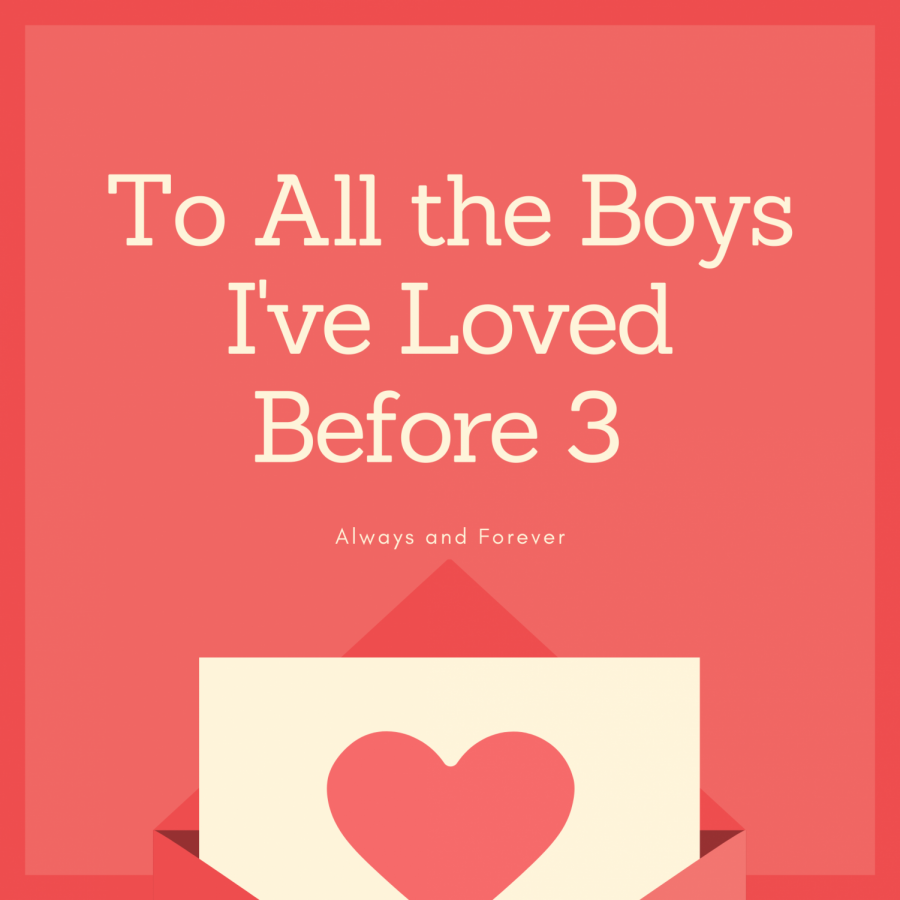Netflix releases final installment in the “To All the Boys I’ve Loved Before” Trilogy
March 15, 2021
Netflix is notorious for pumping out an overwhelming amount of romantic comedies within a single year. Yet, in 2018, the release of “To all the Boys I’ve Loved Before” was a breath of fresh air. Based off of the trilogy by Jenny Han, the movie nearly perfectly executed the beloved first book in the series. After a lackluster sequel “PS I Still Love You” released last February, the anticipation for the final installment “Always and Forever” to successfully close out an overall beloved series was unmatched.
This third movie follows Lara Jean Covey, our quirky half-Korean protagonist, and Peter Kavinsky, her heartthrob of a boyfriend, as they enter their final year of high school. Peter has landed a scholarship to Stanford University for lacrosse, while, to her dismay, Lara Jean has been rejected. The movie thus follows their journey as they struggle to fortify their relationship before taking the next step into adulthood.
With a predictable climax and even more predictable denouement, “To All the Boys I’ve Loved Before: Always and Forever” provides a stale, lukewarm ending to an otherwise fantastic franchise.
Before a depressing dive into all of the mistakes this movie made, let’s start with what they got right. Just like its two predecessors, “Always and Forever” provides the audience with a visually stunning piece. The pleasing color palette, sharp costuming, and clever shots offered a film that was not difficult to get through, but left money on the table with what could’ve been done.
Arguably the first thought that fans of Han’s novels had was: “Was the book just a suggestion?” So much of what went wrong with this film was the product of veering far off course from the satisfying layout that the books offered. Thus, it is unfair to criticize the plot of the movie without mentioning that the true plot, as described in the books, is not to blame.
Simply put, the film made a lazy attempt to slap together a skeleton of milestones. Instead of a subtle ramp up to the major elements of the story, from the college acceptances of the main characters to the highly anticipated New York field trip, the movie pastes together various scenes with animated cards telling the audience what they are about to watch. It altogether felt rushed, underdeveloped, and lazy.
Granted, there is limited real estate when converting literature to cinema, so this might’ve been the producer’s most effective way of driving the plot. Ultimately, though, there were very crucial elements to the film that, when cut, completely disrupted the flow of the story. Everything from Lara Jean’s insecurities surrounding virginity to her issues with Peter’s mom to working through her own doubts about her relationship with Peter were either glossed over or altogether cut out. It is these moments, though, that gave the plot of the books new layers and elevated the storyline beyond the one-dimensional.
Though many argue that the film shouldn’t be held to such a high standard compared to its book counterpart, at the end of the day the film should be reviewed in the context of the book series. When adapting novels for the screen, there is a responsibility to do justice by the author and ensure that the film is the most effective portrayal of the words printed on the page. While “Always and Forever” was not a bad movie to watch, the entire film felt like one large missed opportunity. Though the storyline in the film felt overdone and highly predictable, the novels set it up in a way that is characterized by more nuance and subtlety. If the screenwriters had done a better job of conveying that complexity, then this movie wouldn’t have felt like such a disappointment.
Even when removing the book series from the equation, the film standing on its own radiates the stench of a sappy, teenage melodrama. Lara Jean deals with very few real struggles throughout the duration of the movie: when one college rejects her, she gets a shiny acceptance letter just days later. When she hits a rough patch with Peter, the two make up in record time. The lack of any real struggle makes it almost impossible to actually root for Lara Jean. Even worse, though, the ease with which issues get resolved leaves the audience with little to no faith that Lara Jean and Peter’s relationship can actually survive past the end credits. This movie was just on the cusp of something real within the coming-of-age spectrum, but the unwillingness to actually engage with the problems in a realistic way meant that everything fell flat.
Despite these criticisms, as mentioned earlier, “To All the Boys I’ve Loved Before: Always and Forever” was not a terrible movie. It is a nice, low-stakes, highly-predictable, feel-good movie that is perfect for a night in. Yet, “nice” and “feel-good” still mean that the movie lost the chance to produce something meaningful and real, not just a convenient attempt to close out the trilogy.


